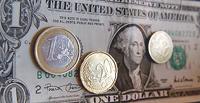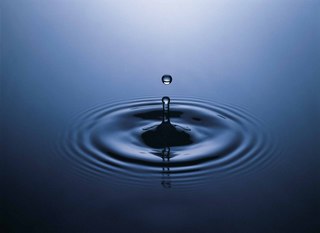Russia and its neighbors may boost crude oil shipments through an Israeli pipeline, helping them compete against Persian Gulf nations for sales in Asia
Published:
3 November 2003 y., Monday
The 254-kilometer Eilat-Ashkelon pipeline, which has flowed from the Red Sea to the Mediterranean for more than 30 years, will reverse direction for a second time in November. A tanker is set to leave the Red Sea port of Eilat, bound for Asia, with oil sent from Ashkelon on the Mediterranean.
Russia wants to sell more oil in Asia, where demand is growing faster than in Europe, as China and Japan seek to reduce their dependence on Middle East exports. The pipeline gives oil companies an alternative to the longer route around Africa and lets them avoid restrictions in Egypt's Suez Canal.
How much crude will be exported across Israel will depend on the so-called arbitrage window, when Russian oil prices are low enough to attract Asian buyers. The pipeline may make Russian crude oil, which costs about four times as much to produce as Middle Eastern grades, more competitive by reducing transport distances and costs.
Very large crude carriers, or VLCCs, which can carry about 2 million barrels of oil, take 10 days to travel from the Red Sea to Asia compared with 30 to 35 days from the Mediterranean.
A tanker is scheduled to unload about 2 million barrels of Russian Urals and Kazakh Tengiz crude at Ashkelon in the second half of November, shipbrokers said.
Šaltinis:
Bloomberg
Copying, publishing, announcing any information from the News.lt portal without written permission of News.lt editorial office is prohibited.
The most popular articles
 The European Commission launched "The ocean of tomorrow " call for research proposals. Oceans cover about 70% of the Earth's surface, but human activity is increasing environmental pressure on them.
more »
The European Commission launched "The ocean of tomorrow " call for research proposals. Oceans cover about 70% of the Earth's surface, but human activity is increasing environmental pressure on them.
more »
 The EBRD is stepping up its support to the real economy in Georgia with new funds for on-lending to local businesses.
more »
The EBRD is stepping up its support to the real economy in Georgia with new funds for on-lending to local businesses.
more »
 Lithuania’s Ambassador to Germany and Special Representative for EU External Relations in the German Foreign Office discussed the situation regarding the decision of private credit insurance company in Germany Euler Hermes to apply the rating of a maximum risk country for Lithuania.
more »
Lithuania’s Ambassador to Germany and Special Representative for EU External Relations in the German Foreign Office discussed the situation regarding the decision of private credit insurance company in Germany Euler Hermes to apply the rating of a maximum risk country for Lithuania.
more »
 Peter Reiniger Business Group Director for Central Europe and the Western Balkans from the European Bank for Reconstruction and Development visited Latvia to sign subordinated loan agreement with Parex banka.
more »
Peter Reiniger Business Group Director for Central Europe and the Western Balkans from the European Bank for Reconstruction and Development visited Latvia to sign subordinated loan agreement with Parex banka.
more »
 The European Commission has approved 16 programmes in 12 Member States to provide information on and to promote agricultural products in the European Union.
more »
The European Commission has approved 16 programmes in 12 Member States to provide information on and to promote agricultural products in the European Union.
more »
 New measures to help farmers through recession as milk prices tumble.
more »
New measures to help farmers through recession as milk prices tumble.
more »
 Federal Reserve Chairman Ben Bernanke said the outlook for the long-suffering U.S. economy appears to be improving.
more »
Federal Reserve Chairman Ben Bernanke said the outlook for the long-suffering U.S. economy appears to be improving.
more »
 The Swiss Government and the EBRD are providing €11.8 million to improve the supply of water to some 1 million people living in Bishkek, the capital of the Kyrgyz Republic.
more »
The Swiss Government and the EBRD are providing €11.8 million to improve the supply of water to some 1 million people living in Bishkek, the capital of the Kyrgyz Republic.
more »
 The Neighbourhood Investment Facility (NIF), a key instrument of the intensified European Neighbourhood Policy (ENP), will benefit in 2009 from a €70 million contribution by the European Commission.
more »
The Neighbourhood Investment Facility (NIF), a key instrument of the intensified European Neighbourhood Policy (ENP), will benefit in 2009 from a €70 million contribution by the European Commission.
more »
 In response to the impact of the global crisis on the Romanian construction sector, the EBRD is supporting Lafarge Ciment (Romania) S.A. with a €20 million loan in Romanian lei to finance the company’s operations and to support its working capital requirements.
more »
In response to the impact of the global crisis on the Romanian construction sector, the EBRD is supporting Lafarge Ciment (Romania) S.A. with a €20 million loan in Romanian lei to finance the company’s operations and to support its working capital requirements.
more »